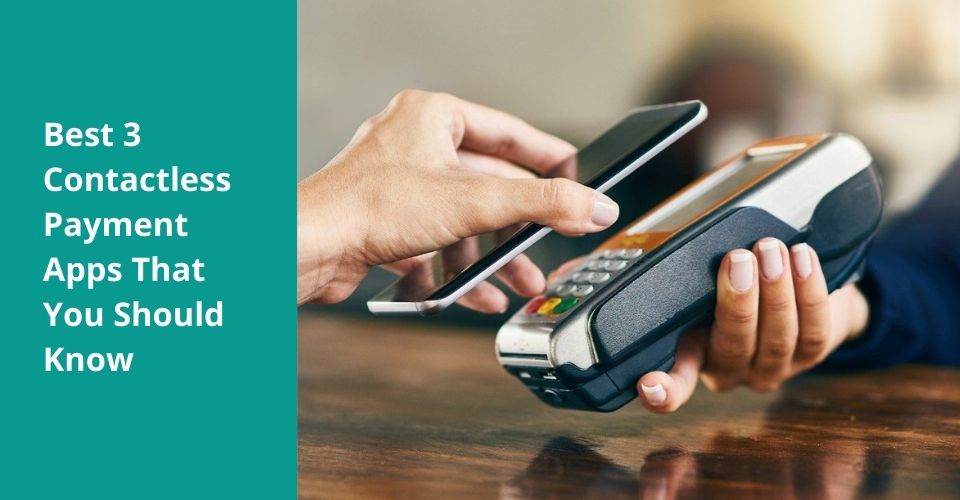Contactless payment apps have been widely available, and now become a favored alternative for many shops and consumers. Let’s go through three outstanding approaches that can limit the risk of virus transmission.
Overview
Apple Pay: Private payment method for iPhone
Apple Pay was first introduced in 2014 as a simple, safe contactless payment app when using an iPhone. It has now expanded to include other devices such as the Apple Watch.
Users can link their credit or debit card to their mobile wallet—Apple Pay works with most card issuers and payment providers—and the device will employ NFC technology to enable contactless payment at Apple Pay-enabled retailers. Apple Pay may be used to make online purchases as well.

How to set up
A contactless payment POS terminal is required for businesses to accept Apple Pay. Contact your payment provider to set up your terminal and tell them you want to accept Apple Pay. If you already have NFC/FeliCa/contactless payment capability, you should have no trouble setting up Apple Pay.
Pricings
Accepting Apple Pay incurs no additional costs for merchants. Apple Pay charges the card issuer, and businesses pay the same credit card rates and fees as they would for a card-present transaction. The payments are made as part of the company’s credit card transactions. Aside from a contactless payment-capable POS terminal, no further equipment is required.
Google Pay: Popular contactless payment app
Google stated in 2018 that it was unifying its multiple payment alternatives. Then Google Pay was established. It can be used for online, in-store, and cross-product transactions, as well as peer-to-peer transactions. Users must have an Android phone or tablet with Google Pay installed.
To adapt to this fast payment method, many merchants have chosen ConnectPOS for its innovative PWA Consumer App.
►►►► Please visit our products: digital banking, situation analysis, Shopify markets, Vietnam Photography Tour, Photography Tour Guide Viet Nam, supply chain operations management, fintech ai, Multi Store POS, Woocommerce POS, Mobile POS, White label POS, POS Reseller, Beauty Supply Store POS, Retail POS and Vape shop POS
How to set up
Transactions are not processed or authorized by Google Pay. It simply permits transactions by tokenizing a card and transmitting that information to payment networks, similar to Apple Pay. In order to accept Google Pay in a store, you’ll need a contactless-enabled payment terminal with an active NFC reader. Businesses should engage with POS providers to ensure that their systems are ready to accept contactless payment data, according to Google.
Pricings
Accepting Google Pay does not incur any expenses for merchants. When a customer uses Google Pay to pay in a store, the card network treats the transaction as a card-present transaction, and the business is responsible for the corresponding merchant costs. Aside from a POS terminal with contactless payment capabilities, no further equipment is required.
PayPal: The digital payment
PayPal announced the availability of its contactless payment app in May 2020, allowing retailers to accept payments in-store. Users can utilize the QR code feature in the PayPal app to open their camera, scan a QR code, enter the amount owed to the business, and pay money right away. Businesses need only create a PayPal QR code and post it in their store.
PayPal also sells credit card readers that enable consumers to make contactless payments using a microchip credit card or other contactless payment apps such as Apple Pay and Google Pay.

How to set up
Sellers must have the PayPal app in order to accept contactless payments. They can then use the PayPal app to download a QR code, print it, and display it at their place of business. Customers must have the PayPal app downloaded on their devices, but no special equipment is necessary. Printed tabletop displays, stickers, or wallet cards with lanyards printed with the QR code can be ordered through PayPal, or vendors can download and print it for free.
Pricings
PayPal is abolishing seller costs through 2021 for its contactless payment option, which is still relatively new. Sellers will pay 1.90% + $0.10 each transaction starting January 1, 2021. Other necessary merchant fees from card issuers and banks will be paid by merchants as well.
In short
The contactless payment app is the top option for small businesses as they adjust to the changes. So to keep up with innovative development, give us a call right now to figure out the best solution for your business.

